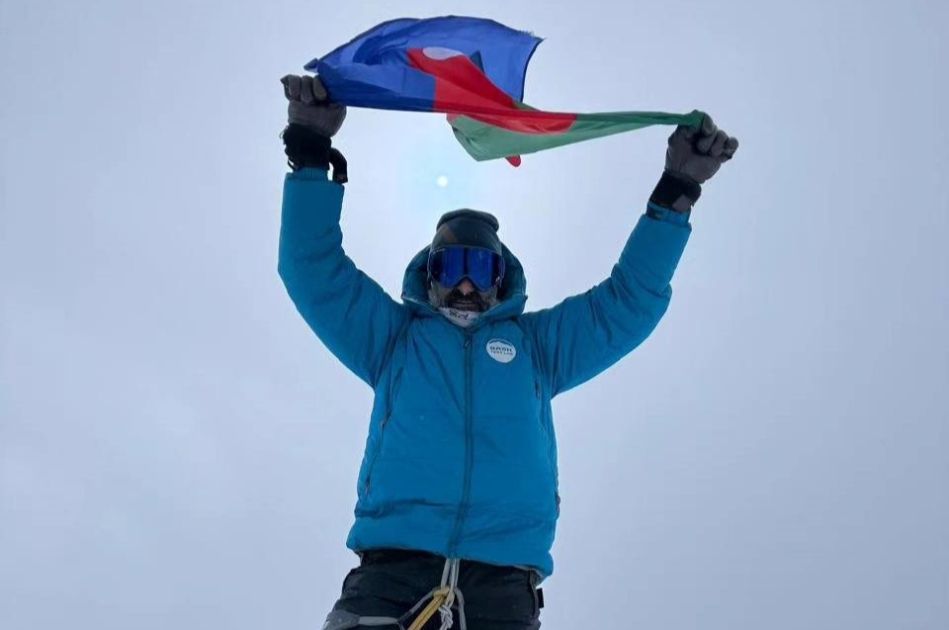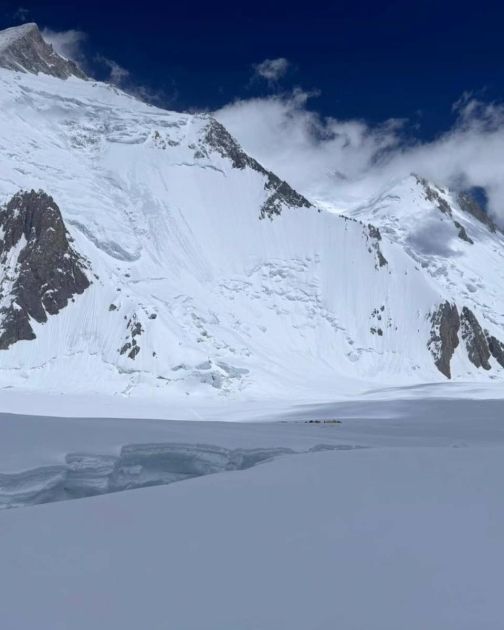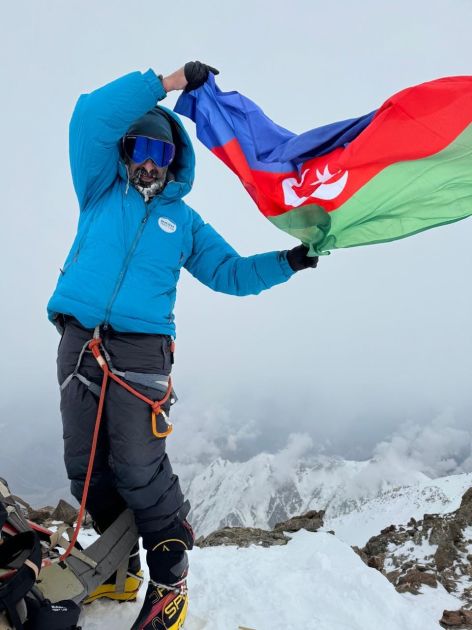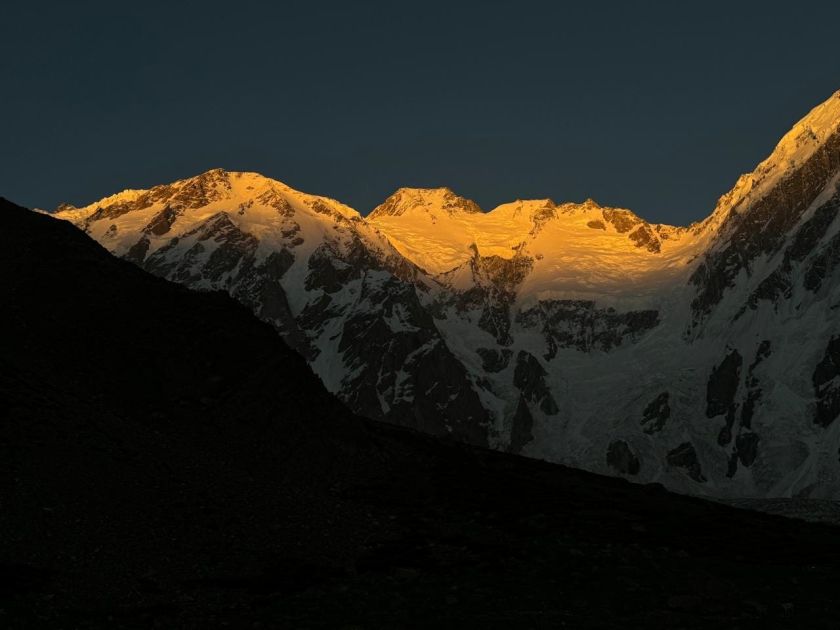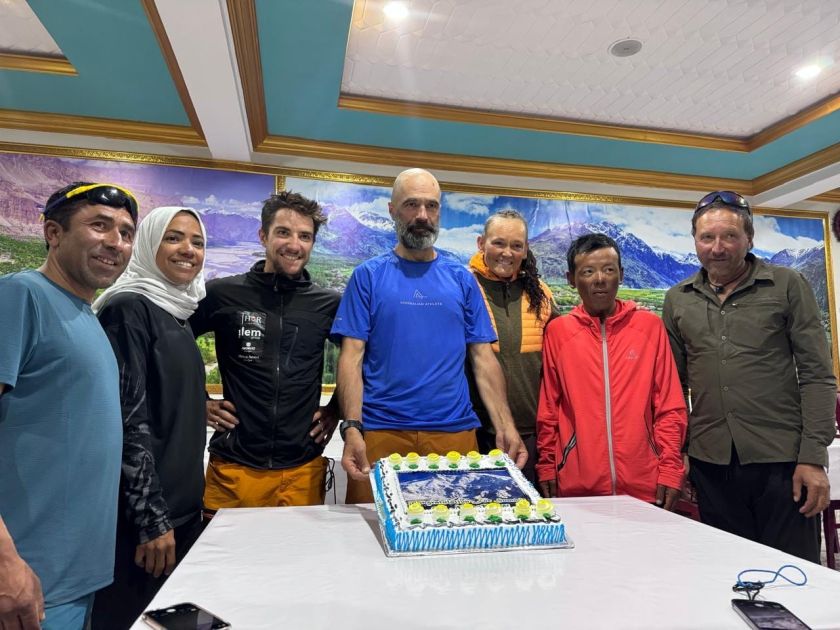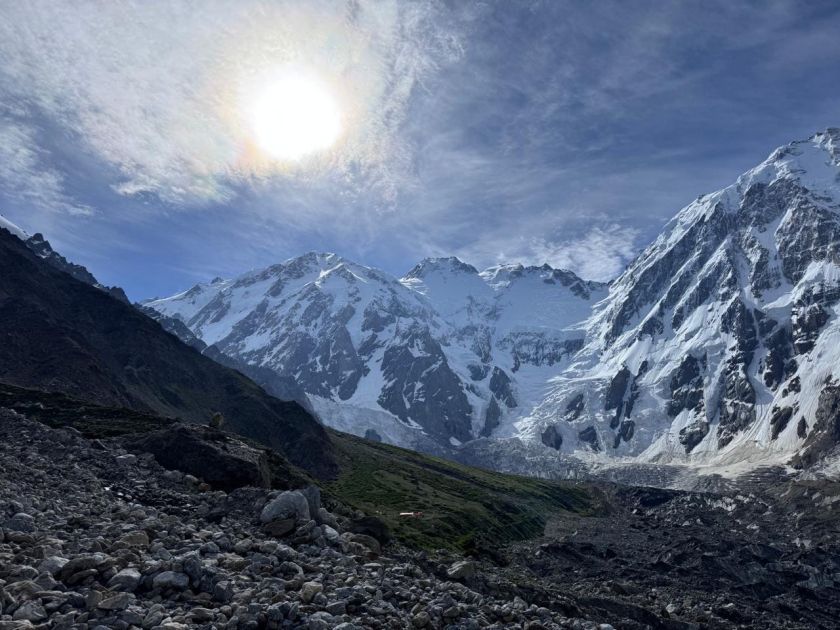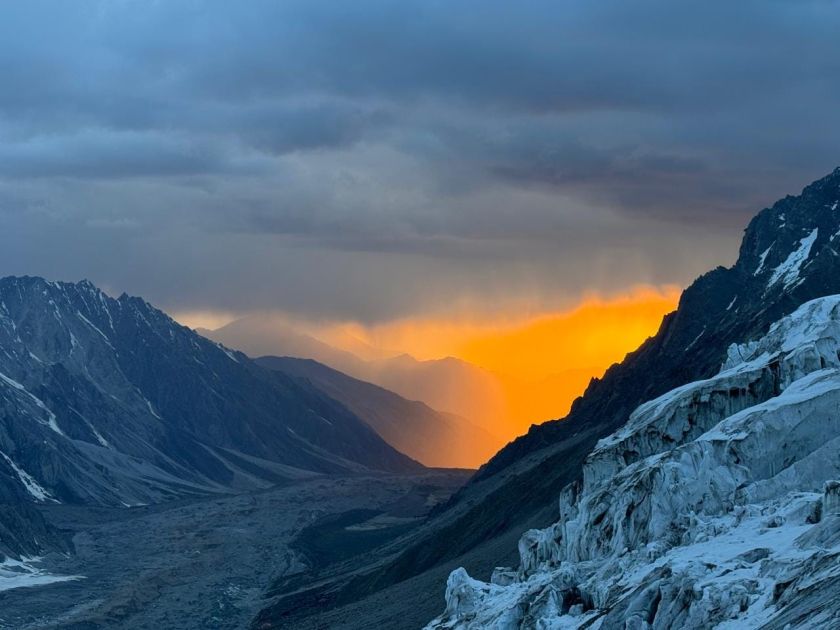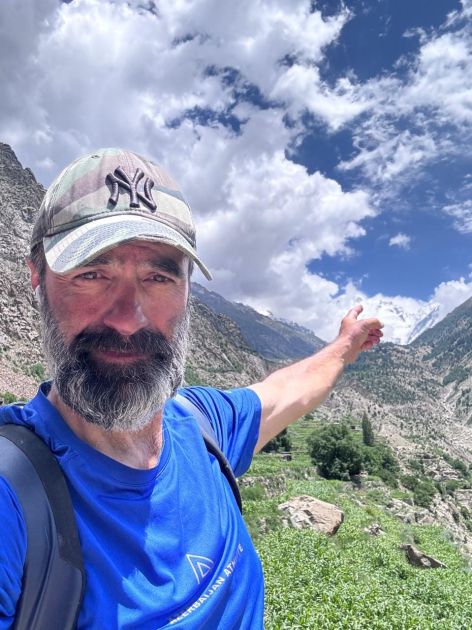Mountain conqueror reflects on his most challenging climbing experiences [EXCLUSIVE]
![Mountain conqueror reflects on his most challenging climbing experiences [EXCLUSIVE]](https://www.azernews.az/media/2024/08/07/climbing_collage.jpg)
Israfil Ashurli, an Azerbaijani mountaineer, has made history as the first Azerbaijani to summit the Himalayan eight-thousanders. His impressive achievements include climbs of Chomolungma (2007), Kangchenjunga (2011), Lhotse (2019), and Manaslu (2019).
In addition to these feats, Ashurli became the first Azerbaijani Snow Leopard in 2009, a title awarded to climbers who summit all five of the world's highest peaks in the Karakoram and the Himalayas. He also achieved the distinction of being the first Azerbaijani to reach the North Pole in 2009 and was the first to conquer Vinson Massif, Antarctica's highest peak, in December 2005.
In an interview with Azernews, Ashurli shared insights from his remarkable climbing career.
Q: When did you first become interested in mountaineering?
A: In 1998, a friend gave me a National Geographic (GEO) magazine featuring an article about the 1996 Everest tragedy, saying, "This is what you should do." After reading the article, which detailed the unfortunate events where inexperienced climbers, relying solely on guides, perished in harsh conditions, I realized that this might not be for me. However, a few months later, I was invited on a hiking expedition to the base of Kanchenjunga (8,586 meters), the third highest peak in the world. I was eager to understand what draws people to mountains.
Ten days into the expedition, I found myself at a high pass, looking up at the towering mountain made of rocks, snow, and ice. Back then, I couldn’t imagine that 12 years later, I would be standing on the summit of that very mountain, looking down at the same pass through a break in the clouds. I began my mountaineering journey at the age of thirty.
Q: What moment in your life as a mountaineer do you consider the most significant?
A: The most significant moment for me was when I achieved my goal while still retaining my humanity by choosing to help others in distress. Before every ascent, I always pray for the strength and skill to assist those in need.
Q: You successfully climbed Gasherbrum II (8,035 meters) and Nanga Parbat (8,125 meters) despite challenging weather. What emotions did you experience during these ascents?
A: My experience with Nanga Parbat involved three attempts over 11 years. I first tackled this mountain in 2013, but the expedition was interrupted and we were evacuated while fixing ropes at over 6,000 meters. In 2023, during my second attempt, I was one step from the summit at 7,400 meters when I had to pause the climb to assist Polish climbers in distress and save Pakistani climber Asif Bhatti. This year, I finally reached the summit without supplemental oxygen.
After descending, I decided to attempt one or two more eight-thousanders. I traveled from the Western Himalayas to Karakorum and, despite the bad weather, reached the summit of Gasherbrum II after 13 days. Unfortunately, I had to forgo a third ascent and return home due to unforeseen reasons.
Q: What do you think are the essential rules for mountaineers?
A: Mountains are dangerous, requiring mountaineers to be physically fit, technically skilled, and mentally prepared to survive extreme conditions. Despite breathtaking surroundings, favorable weather, and adherence to safety rules, the most important rule is to minimize time spent on the route. Today, many ascents are led by guides, and it is common for climbers lacking experience and technical knowledge to rely entirely on them. This reliance can be risky if something happens to the guide, leaving climbers helpless.
Q: What drives you to continue mountaineering, despite the significant risks?
A: Mountaineering has become a guiding code for me over the past 25 years. The mountains have profoundly shaped who I am, teaching me the importance of retreating when necessary and seizing the right moments to advance. I have learned to endure and overcome my fears and weaknesses. I continually improve my physical fitness and enrich my experience. In the mountains, I have found faith in God, in my comrades, and in myself. In my ascents, I strive to minimize risks while never forgetting the dangers of the vertical world.
Q: What are your future climbing ambitions?
A: Regarding climbing the world’s highest peaks, my goals are clear. I have successfully summited 8 of the 14 tallest peaks and aspire to conquer the remaining ones. Success will depend on time. There are many iconic and stunning peaks across various mountain ranges that I am eager to explore. However, my immediate focus remains on climbing peaks above 8,000 meters.
----
Laman Ismayilova is AzerNews’ staff journalist, follow her on Twitter: @lmntypewriterrr
Follow us on Twitter @AzerNewsAz
Here we are to serve you with news right now. It does not cost much, but worth your attention.
Choose to support open, independent, quality journalism and subscribe on a monthly basis.
By subscribing to our online newspaper, you can have full digital access to all news, analysis, and much more.
You can also follow AzerNEWS on Twitter @AzerNewsAz or Facebook @AzerNewsNewspaper
Thank you!


